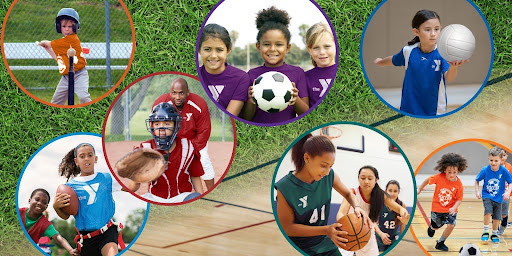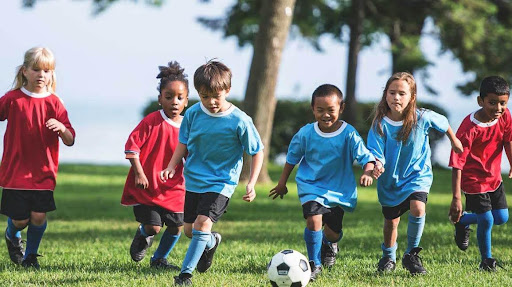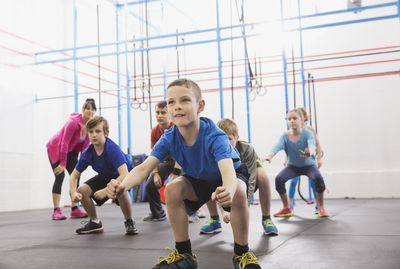by Gabby Haugh, PT, DPT, CSCS, USAWL1
If you are the parent or loved one of a youth athlete, you have probably heard about sports specialization. It may have been from the athlete’s coach, another parent, or social media, but ultimately early sports specialization has become increasingly popular. You may be thinking, “Should my child specialize in a sport?” “Will specializing help my child play in college or professionally?” “Are there any negative consequences to sports specialization?” As a physical therapist who completed a sports residency program at a children’s hospital, I underwent specific training in the examination and treatment of injuries and conditions specific to youth athletes. Sports specialization came up frequently with my patients and their families. In this blog, I will address the background and common questions about early sports specialization.
A Background on Early Sports Specialization
Sports specialization is defined as “intense, year-round training in a single sport with the exclusion of other sports.” For the purpose of this blog, early sports specialization refers to athletes of elementary and middle school age who choose to specialize in a sport. These are athletes who do not participate in any other sports besides their primary sport and never have an off-season. Put differently, an athlete is NOT considered specialized if they play one sport year-round, but also play other sports throughout the year. If they only play one sport, but have periods of the year when they are not competing in this sport, this is still not considered sports specialization. There is no one definition of “intense” training, but a good rule is that if the youth athlete is participating in more hours per week of this sport than their biological age, it is considered intense. For example, a 12-year-old female athlete who participates in 20 hours per week of soccer would be undergoing intense training. This example would include things such as organized practice, matches, private lessons, skill sessions, etc. Another essential definition for sports specialization is “Has the athlete quit participation in other sports to focus on this one sport?”

Should My Child Specialize Early in a Sport?
The most common argument in favor of early sports specialization is that it will improve a young athlete’s chances of becoming elite, playing at the collegiate level, and/or potentially playing professionally. Previous studies have suggested that as few as 1% of youth athletes (ages 6-17) who play basketball, baseball, softball, or football will reach the elite level and there is little evidence to suggest that early intense training increases these odds. A study in NCAA Division I athletes indicated that only 17% of this population specialized in their sport before age 12. Additionally, this study showed that almost half of this population played multiple sports up to age 16. Furthermore, athletes who played multiple sports while growing up required fewer training hours to reach elite status when they did ultimately choose to specialize.

What Are The Potential Consequences of Early Sports Specialization?
Research studies investigating the consequences of early sports specialization have found the following conclusions:
- Higher levels of burnout
- Quitting a sport earlier than their peers
- Increased risk of injury due to higher volume of training
- Negative psychological stress (depression, perfectionism)
- Poor sleep quality
Additionally, athletes who specialized early in sport may be more likely to report higher perceived parental criticism and less input into their training.

Take-Home Message About Early Sports Specialization
If your child has truly found the sport that they love and would like to compete for a long period of time, specialization should be avoided until after reaching puberty. There is no evidence that specializing before this time period offers competitive benefit and a child’s risk of injury will be increased, potentially affecting their long term career. Should your young athlete choose to specialize at this point, follow these guidelines:
- Make sure they enjoy their sport
- Athletes who are motivated within themselves (rather than by external expectations) are more likely to have fun while playing and have higher self-esteem.
- Decrease overall expectations of success
- Remind your child how much you love watching them play, not just watching them win.
- Ensure the athlete has a true off-season
- This can be complete rest or participation in another sport
There are many ways to improve your child’s chances of becoming elite without early sports specialization. Get in touch with us if you have more questions about how to best prepare your youth athlete to succeed.




